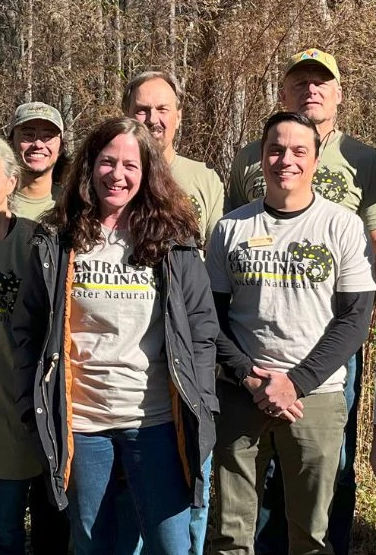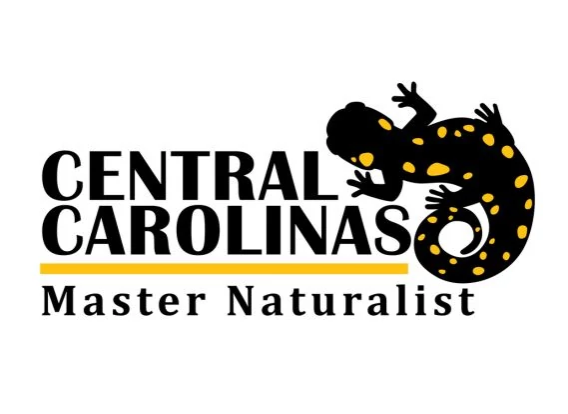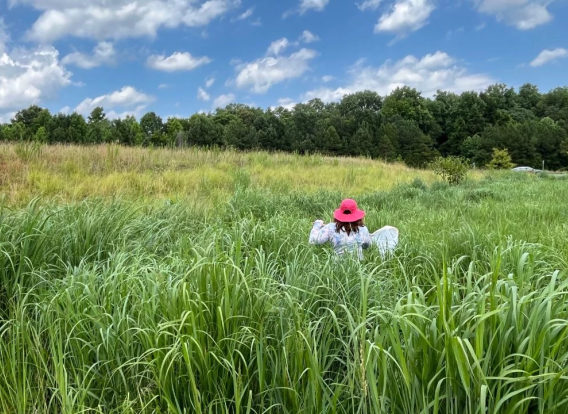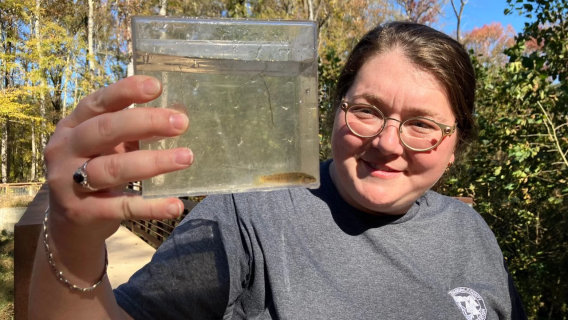
Central Carolinas Master Naturalist Program
The Central Carolinas Master Naturalist (CCMN) Program is an adult certification program designed to educate and train volunteers who provide support in the conservation, management, and interpretation of natural resources and natural areas within Mecklenburg and the surrounding 13 counties.
What is a Master Naturalist?
Master Naturalists are passionate about the natural world, concerned for the local environment, and give back to their community through volunteer service. They make a difference in the community through education, stewardship, and assist the public in understanding and appreciating the natural environment. Master Naturalists are valued for their natural resource knowledge and dedication.

Certification Requirements
CCMN Program certification cycles operate on a calendar year (January to December) format. To obtain initial certification as a Certified CCMN, program participants must complete all basic training course classes, volunteer service, and advanced training requirements by Dec. 31 within the same calendar year the CCMN Program and basic training course are started. To maintain certification (recertification), program participants must complete the volunteer service and advanced training requirements only. Completion of the CCMN basic training course classes is required for initial certification only.
Basic Training Course
The 72-hour CCMN basic training course is offered once per calendar year. Classes start in late January and end in early December. One to two classes are scheduled each month for a total of 12 classes. No classes are scheduled in July and August. Each class consists of approximately 50% classroom lecture and 50% field/hands-on activities. Instructors include Mecklenburg County staff, university and college professors, and local experts. Class attendance is required.
Volunteer Service
Participants must conduct a minimum of 40 pre-approved volunteer service hours with at least 20 of the 40 hours dedicated to Mecklenburg County Park and Recreation projects. Volunteer service is categorized into four focus areas: administrative/program support, environmental education and interpretation, citizen science, and stewardship. Volunteer service must be conducted within the 14-county Central Carolinas program area. After initial certification, Certified CCMNs must complete the same volunteer service requirement on a calendar year basis to maintain certification (recertification).
Advanced Training
Participants must complete a minimum of eight pre-approved advanced training hours. The purpose of advanced training is to provide participants an opportunity to focus their volunteer efforts on one, or several, specific topics of interest. After initial certification, Certified CCMNs must complete the same advanced training requirement on a calendar year basis to maintain certification (recertification).

Program Benefits
CCMN Program participants not only increase their knowledge from local experts in natural history, natural resource management, and teaching skills, they also interact and network with fellow naturalists and organizations with similar interests.
Benefits include a Certificate of Completion as a Central Carolinas Master Naturalist Member/Certified Central Carolinas Master Naturalist, certification pin, official name badge, CCMN T-shirt, naturalist field guides, and more. In addition, contact hours earned through the CCMN Basic Training Course can be applied toward certification/recertification requirements for the North Carolina Environmental Education Certification and the National Association of Interpretation Certified Interpretive Guide Programs.


